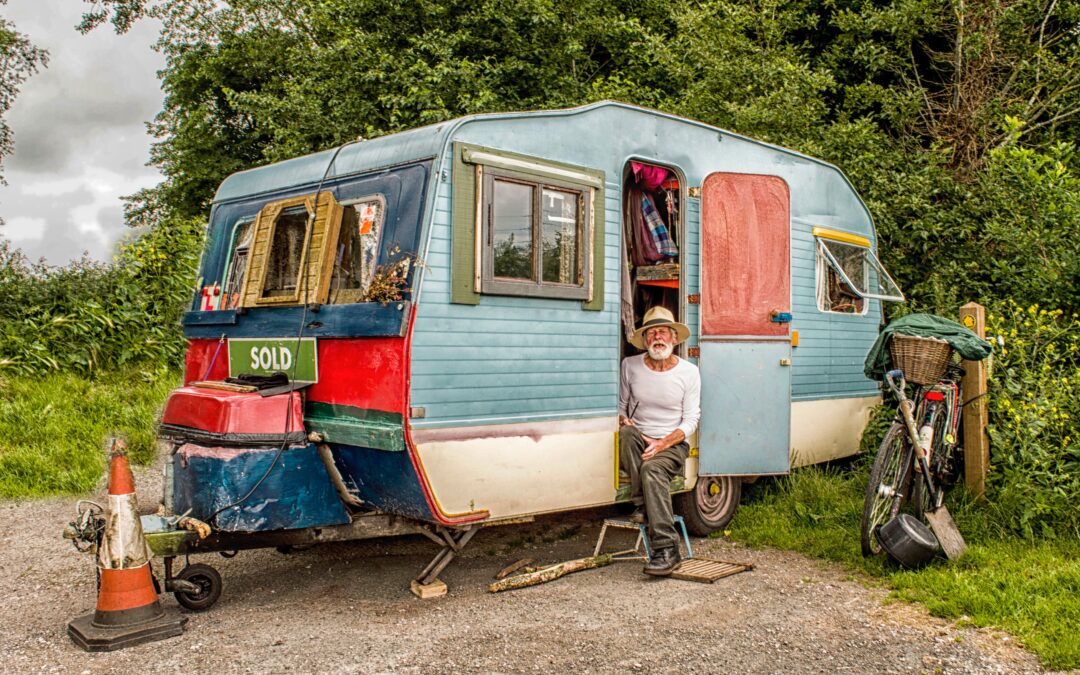Your first step towards embracing the RV life full stop is actually seeking out your dream vehicle. This means asking all the right questions right off the bat. What’s a big rig? What are the differences between a Class A, B or C van? What makes an RV stand out from a cabin, camper, mobile home, motorhome, trailer or truck? You could shop around and spend weeks scouring online forums, consumer magazines and Google search engine results to find the answers.
Or you can scrap all that, make it easier and instead consult the top 10 questions we’ve generated for you to guide you on your quest for the perfect RV! If the latter, let’s get started:
1. What type of outdoor activity are we doing?
Your approach — along with that of your spouse/partner, and the children — to pursuing the wild blue yonder should be top of mind.
After all, the RV you choose must be customized and outfitted to suit your new, shared lifestyle.
This leads to more questions.
Are we full-timing and in it for the long haul? Is this for recreation or is this an actual housing choice?
What form of outdoor activity are we engaging in — camping, canoeing, climbing, cycling, ice or fly fishing, hiking, kayaking and whitewater river rafting?
What supplies are we missing? What else should we buy? What dealers, outfitters or online retailers are the best sources for what we need?
After shopping around, the outdoor life you select will dictate your choice of RV so choose wisely based on all of the right factors.
2. Where are we camping?
Finding your idyllic camping site takes just as much research as your sleuthing for an new RV.
It’s likely you may pick an area closest not too distant from your private home residence.
You will need to know where you want to set up camp. You could start with the national or state park systems.
That sounds simple enough, right? Actually, it’s not. Most campgrounds and state parks cannot accommodate your large rig if you own one, especially if you go full-time.
For the public parks, you must get an RV 32 feet or under. And the parks will take your camper, camper van, little travel trailer or any other small unit.
For your big RVs, you may need to invest in an Class A vehicle or a tow car or trailer and camp in a park that take 50 amps of power unlike the 30 amps of state parks.
3. Are we roaming or sticking to one site?
You may have to decide between a big rig or a small RV. The larger your vehicle, the more fuel it will require. This matters if you plan to travel a lot or camp in place.
If you hope to stick to one site, you must invest in an RV with multiple hookups and that meets your daily needs.
Your RV is more like your car than your house. It is not a brick-and-mortar structure so your RV may be high-maintenance.
If you are by the property managed by the Bureau of Land Management of the U.S. Department of the Interior or a private lot, you should have an RV with big holding tanks and solar capacities. Most RVs are close to the ground.
You ought to be able to live off the grid without damaging your vehicle. Your RV must be able to hold up under your lifestyle choice.
4. How many RV’ers are we?
Pick an RV that can take your family. Besides you and your spouse, how many children are we talking? How will they study? Are there pets? Who is sleeping inside or en plein air?
Keep in mind that most campgrounds have regulations for pets and children.
Make sure your selection can accommodate more space. For children, you’ll consider a bunkhouse. For large dogs, you’ll need a Class A or Class C, especially if they are living inside.
5. Are we going in a truck? If so, how big is it?
If you have a truck, you’ll likely get a travel trailer or fifth wheel. Still, your truck must be the same size as the fifth wheeler or trailer.
It’s best to research this thoroughly because you may not benefit from the truck you already own. A fifth wheel and a truck may cost as much as a Class A motorhome you have been eying.
6. What is our budget?
You can’t avoid it. You have to face it head-on. You must decide on a budget to purchase your new RV. Ask yourself: how much do we have to spend on a new vehicle?
RVs are essentially apartments-on-wheels and they price as much. You can use the process of elimination and decide to buy or not to buy a truck, a trailer or a Class A, B or C motorhome. You can opt for a budget between $50,000 to $200,000. The amount may determine the right RV for you.
7. Who’s the designated driver?
Operating an RV takes a certain skill. Not everyone can take one on. You could appoint yourself as the official chauffeur of your new rig or you can assign this task to yourself, your fiancee, your spouse or even a son or daughter.
When you shop around, try a test drive of your ideal vehicle. After all, this will be the model you will be driving for a long time. You must be comfortable with it.
The performance and handling is bound to be different with each model. Strike on a style, size and comfort level that suits you and your family.
8. What are the key features to our shared lifestyle?
You should also pick out the elements you most want to see adorning your new RV. You may have to compromise among you, your fiancee or your spouse and your children. Think about what you deem most important.
In the end, all of you must agree on the ability to get around, basement storage, backup, one or two bathrooms, bunk beds, common or multipurpose areas, desks, diesel engines, dishwashers, flat screen TVs, pantries, porcelain toilets, sleeping areas, storage, towing, washers and dryers.
9. How will we fund this?
Once you’ve prepared a budget, you can conclude on how much you can spend whether that’s in cash, on credit, in stocks and bonds or cryptocurrency. You can also choose to approach your bank to secure financing.
10. How long are we RV’ing?
This needs to be thought through and planned in advance. How long will you, your fiancee or your family be roughing it? Will you just be weekend warriors? Will you just RV for a few years? Several years? Only you decide.
Whatever your choice, it should accommodate the length of time you dream of living out near the primeval forest. As your needs change, so will your choice of RVs.
You must plan and budget for these transformations and, in some cases, downsizing.
Think long and hard, too, who you will take with you. Will it be your spouse? Your children? Your grandchildren? Some cousins, nieces or nephews? Old friends? A former boss or some colleagues?
Sound planning could mean the difference between a welcome, albeit mechanical, addition to the family or a disaster rig. Mull it over with your fiancee, spouse or family. Give it some thought.






